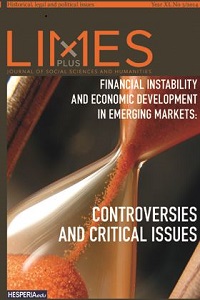Financialization in Unsuccessful Neo-Mercantilist Economies
Financialization in Unsuccessful Neo-Mercantilist Economies
External Capital Inflows, Financial Gains and Income Inequality
Author(s): Noemi Levy OrlikSubject(s): Business Economy / Management, Financial Markets, Socio-Economic Research
Published by: HESPERIAedu
Keywords: Financialization; neo-mercantalism; foreign capital; financial gain; Latin American Countries; GDP
Summary/Abstract: The workings of the capitalist mode of production was drastically modified by the industrial crisis in developed economies during the 1970s. In developing economies the ISI model was replaced by globalized, deregulated and financialized systems that were dominated by exports and unable to achieve surplus or balanced current accounts. Therefore, foreign capital inflows were needed to stabilize balance of payments, and this meant higher income leakages, in the form of financial gains. On this basis it is argued that “unsuccessful” economies that underwent the process of financialization and neo-mercantilism experienced limited economic growth, and more importantly, increased income inequality, as developed economies increasingly appropriated the financial gains of developing economies. In addition to the exporting of goods and services based on low wages (and reduced costs), the financial market was strengthened as a means of extracting the surplus from developing economies in the form of financial gains, opening up what we have referred to as the “financial channel”.
Journal: LIMESplus
- Issue Year: 2014
- Issue No: 3
- Page Range: 147-175
- Page Count: 29
- Language: English

